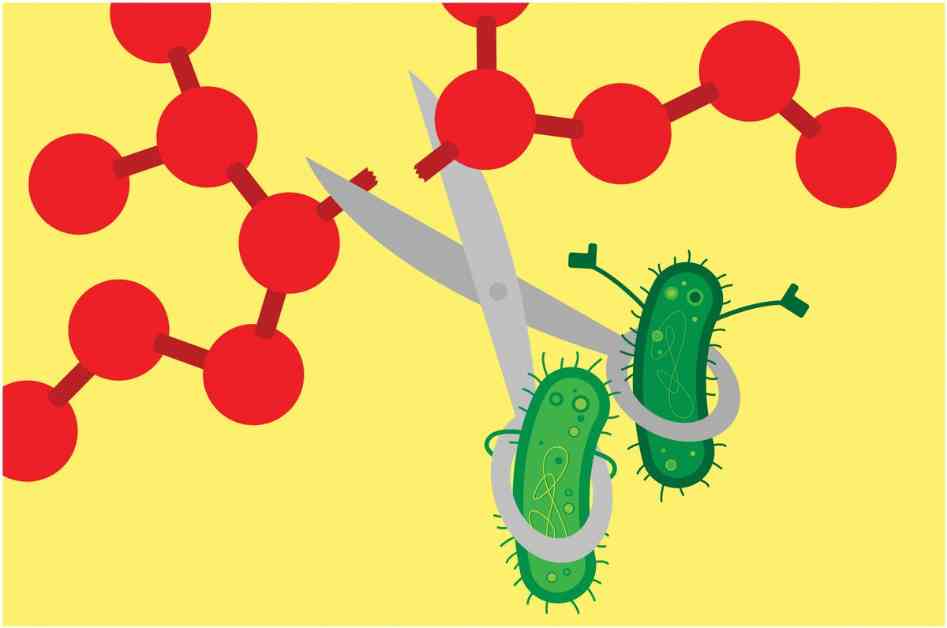A group of bacteria has shown promise in breaking down the tough carbon-fluorine bonds found in “forever chemicals,” known as perfluoroalkyl and polyfluoroalkyl substances (PFASs). These chemicals are commonly found in everyday items like pizza boxes, rain jackets, and sunscreens, and they have infiltrated the environment and human bodies, leading to various health issues.
Current methods to destroy PFASs involve extreme heat or pressure and are only effective on filtered waste. Researchers have been exploring the potential of using bacteria to break down these chemicals in a more cost-effective and scalable way. While bacteria have not evolved specifically to digest PFASs, a recent study identified four strains of bacteria from the Acetobacterium genus that produce enzymes capable of breaking down PFAS molecules by replacing fluorine atoms with hydrogen atoms.
These bacteria were able to partially digest perfluoroalkyls, a type of PFAS that is difficult for most microbes to break down. The study also highlighted the potential for engineering these bacteria to improve efficiency and expand their capabilities to tackle a wider range of PFASs. However, there are still challenges to overcome before these microbes can be used commercially, such as speed of breakdown and replicability outside of the lab.
Lead study author Yujie Men envisions these bacteria working in conjunction with other methods to degrade PFASs, as the chemical structures of these compounds are diverse and complex. While there is still much to learn and refine, the research is paving the way for new possibilities in addressing the pervasive issue of PFAS contamination in the environment.
As scientists continue to explore the potential of harnessing microbes to degrade persistent chemicals like PFASs, there is hope for more sustainable and effective solutions to combat environmental pollution and its associated health risks. The road ahead may be challenging, but the progress made so far is promising in the quest for cleaner and healthier environments for future generations.




